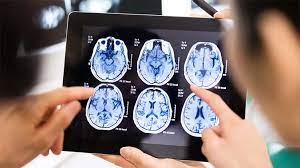Monitoring Desk
CALIFORNIA: Anew brain implant is helping survivors of traumatic injuries lead more normal lives.
In a new study, published Monday in Nature Medicine led by researchers from Stanford University, a procedure called deep brain stimulation was shown to restore cognitive function after patients suffered a traumatic brain injury.
Many survivors of moderate to severe traumatic brain injuries suffer lasting aftershocks, like a less robust ability to focus on tasks, resist fatigue, organize, and process information.
Estimates put the number of people experiencing these effects at around five million—with few treatment options.
However, if these patients were able to recover some brain function after their injury, this indicates that the brain may be receptive to healing even more.
To do this, Stanford-led researchers devised an implant that uses electricity to activate areas of the brain that an injury has prevented from activating on their own.
It is surgically placed deep in the brain, and then calibrated to emit the electricity needed to stimulate the affected areas.
The research could have a potentially life changing impact on the 5 million people in the United States who are experiencing issues after a traumatic brain injury, who currently have no recourse for treatment.
In 2001, Gina Arata was finishing college when a car accident resulted in a traumatic brain injury. While she survived, the lasting effects impeded her ability to live a normal life.
“I couldn’t remember anything,” said Arata in a press release. “My left foot dropped, so I’d trip over things all the time.
I was always in car accidents. And I had no filter — I’d get pissed off really easily.”
She got one of the brain implants in early 2018. When the implant was turned on, she was able to name fruits and vegetables one might find in the produce aisle, but when the implant was turned off, she couldn’t name any.
After the implant, her life has changed considerably.
“Since the implant I haven’t had any speeding tickets,” Arata continued. “I don’t trip anymore. I can remember how much money is in my bank account.
I wasn’t able to read, but after the implant I bought a book, Where the Crawdads Sing, and loved it and remembered it. And I don’t have that quick temper.”
According to the authors, this is the first treatment of its kind that holds the potential to treat these life-altering injuries.







